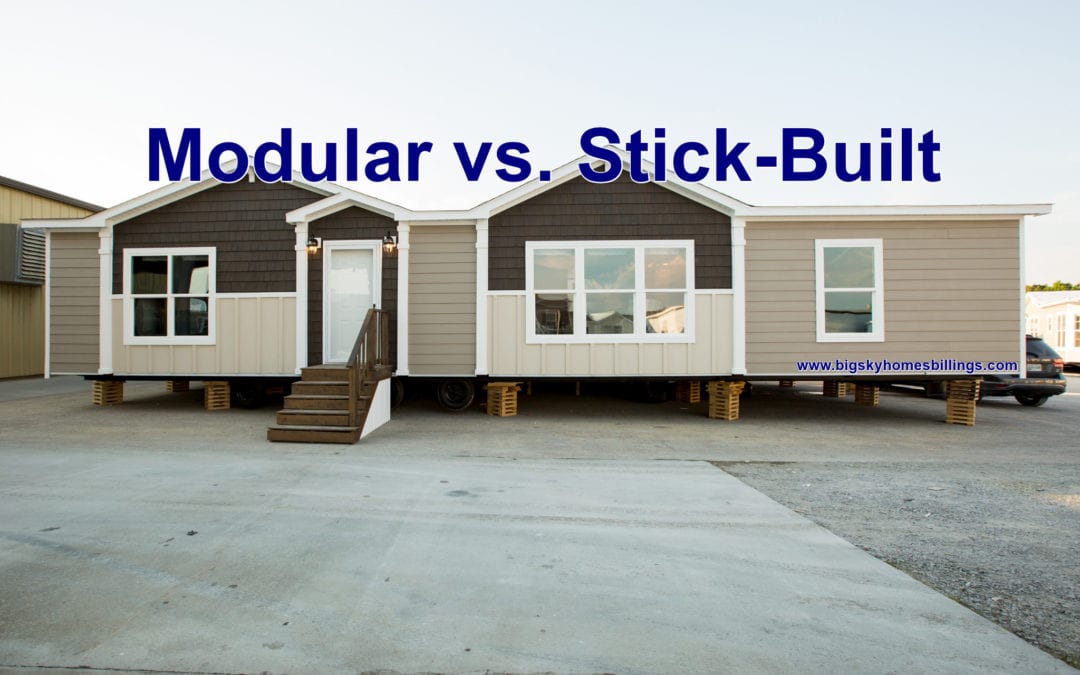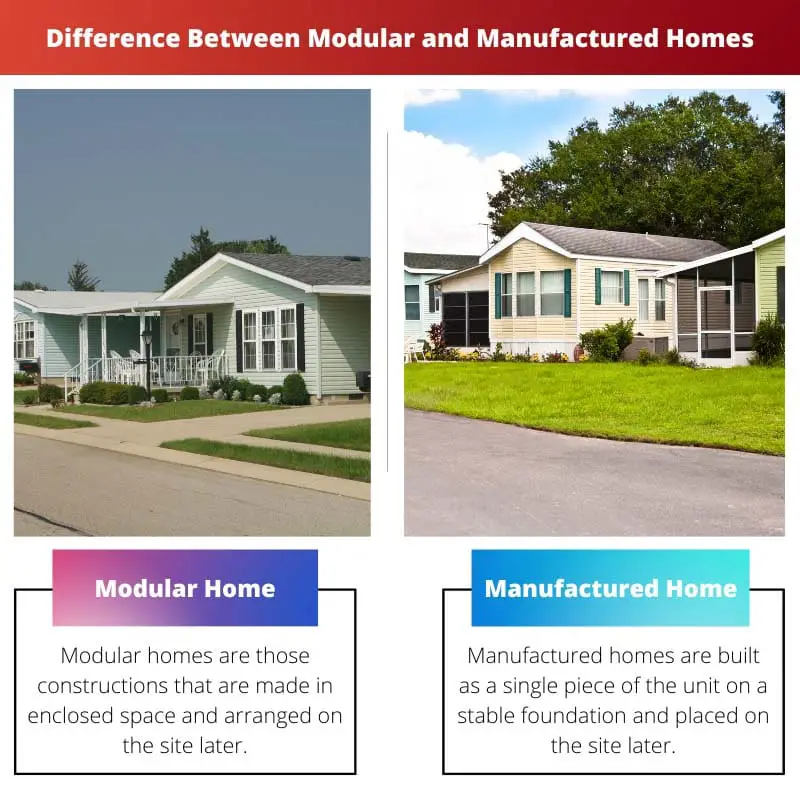Custom-built homes vs modular homes: A Comprehensive Comparison
Exploring the differences between custom-built homes and modular homes, this introduction sets the stage for an insightful discussion. With a focus on key aspects like design, construction, and resale value, readers are in for a detailed analysis of these two popular housing options.
Custom-built homes offer a unique opportunity for homeowners to tailor every aspect of their living space to their preferences, while modular homes provide a more streamlined and cost-effective alternative. Let's delve deeper into the nuances of each to help you make an informed decision.
Custom-built Homes
When it comes to custom-built homes, the process involves working closely with an architect and a team of builders to design and construct a home that is tailored to the specific needs and preferences of the homeowner. This process typically starts with a consultation to discuss the homeowner's vision, budget, and timeline.
From there, the architect will create a design that reflects these preferences while also considering factors such as the site, local building codes, and structural integrity.
Benefits of Choosing a Custom-built Home
- Personalization: Custom-built homes offer the opportunity to personalize every aspect of the home, from layout to finishes, ensuring that the final product reflects the homeowner's unique style and needs.
- Quality Control: With a custom-built home, homeowners have greater control over the quality of materials and workmanship, leading to a higher-quality finished product.
- Long-term Satisfaction: By designing a home that meets their specific needs and preferences, homeowners are more likely to be satisfied with their home in the long run, reducing the likelihood of needing renovations or modifications in the future.
Flexibility in Design Options
Custom-built homes offer a wide range of design options, allowing homeowners to create a home that truly fits their lifestyle. From choosing the layout of the rooms to selecting finishes and fixtures, the possibilities are virtually endless. This flexibility allows homeowners to create a space that is not only functional but also aesthetically pleasing and reflective of their personal taste.
Modular Homes
Modular homes are constructed in sections or modules off-site in a factory setting. These modules are then transported to the final building site and assembled together to create the complete home. The process involves precise engineering and coordination to ensure that all modules fit together seamlessly.Modular homes offer several advantages over custom-built homes.
First and foremost, they are typically more cost-effective since the construction process is streamlined in a factory setting. This can result in lower labor costs and reduced material waste. Additionally, modular homes are often quicker to build as the modules can be constructed simultaneously while site preparation is underway.
When comparing the cost-effectiveness of modular homes versus custom-built homes, modular homes tend to be more budget-friendly due to the controlled environment of the factory setting. The ability to mass-produce modules can also lead to cost savings for the homeowner.
However, it is essential to consider the customization options available for modular homes, as they may be limited compared to custom-built homes.
Design and Customization

When it comes to designing and customizing your home, there are distinct differences between custom-built and modular homes. Let's explore the level of customization possible in each option and compare their design flexibility.
Level of Customization in Custom-Built Homes
Custom-built homes offer a high level of customization, allowing homeowners to have complete control over every aspect of their home's design. From the layout and size of the rooms to the materials used and finishing touches, custom-built homes can be tailored to meet the specific needs and preferences of the homeowner.
This level of customization allows for a truly unique and personalized home that reflects the homeowner's individual style and taste.
Standard Design Options in Modular Homes
On the other hand, modular homes typically offer a more limited range of design options compared to custom-built homes. While there are standard floor plans and designs available for modular homes, customization options may be restricted to certain features or finishes.
Modular homes are built in sections in a factory and then transported to the site for assembly, which can limit the degree of customization possible.
Comparison of Design Flexibility
In terms of design flexibility, custom-built homes clearly have the upper hand. With custom-built homes, homeowners have the freedom to create a one-of-a-kind home that suits their unique needs and preferences. On the other hand, modular homes may offer some degree of customization within a set range of options, but they may not be able to achieve the same level of personalization as custom-built homes.
Ultimately, the choice between custom-built and modular homes will depend on the homeowner's priorities and preferences when it comes to design and customization.
Quality and Durability
Custom-built homes are known for their high quality standards. Builders often use premium materials and pay close attention to every detail of the construction process. This ensures that the home is built to last and meets the specific requirements of the homeowner.
Quality Standards in Custom-built Homes
Custom-built homes are constructed with high-quality materials such as solid wood, stone, and premium fixtures. Builders work closely with the homeowners to ensure that every aspect of the home meets their preferences and standards. This results in a durable and long-lasting home that reflects the homeowner's unique style and needs.
Durability and Longevity of Modular Homes
Modular homes are also known for their durability and longevity. These homes are constructed in a factory-controlled environment, which ensures that they are built to withstand transportation and installation. Modular homes are designed to meet strict building codes and quality standards, making them a reliable housing option for many homeowners.
Comparison of Materials
The materials used in custom-built homes are often of higher quality compared to those used in modular homes. Custom-built homes typically feature premium materials such as hardwood floors, granite countertops, and custom cabinetry. On the other hand, modular homes may use more standardized materials to facilitate the construction process.
While both types of homes can be durable and long-lasting, the choice of materials often sets custom-built homes apart in terms of quality and customization options.
Construction Time and Process

When it comes to constructing a new home, the timeline and efficiency of the process are crucial factors to consider. Let's delve into the differences between custom-built and modular homes in terms of construction time and process.
Timeline for Constructing a Custom-Built Home
Building a custom-built home typically involves a longer construction timeline compared to modular homes. The process of designing the home, obtaining permits, and constructing the house according to the specific requirements of the homeowner can extend the timeline significantly.
Efficiency of the Construction Process for Modular Homes
Modular homes are known for their efficient construction process. Unlike custom-built homes that are constructed on-site, modular homes are built in a factory-controlled setting. This controlled environment allows for simultaneous construction of different modules of the home, leading to quicker completion and fewer weather-related delays.
Comparison of Construction Timeframes
- Custom-built homes: The construction of a custom-built home can take anywhere from several months to over a year, depending on the size, complexity, and customization of the home.
- Modular homes: On the other hand, modular homes are constructed in a fraction of the time compared to custom-built homes. The assembly of modules in the factory can be completed in a matter of weeks, and on-site assembly typically takes a few weeks to a couple of months.
- Overall, modular homes offer a much quicker construction timeline compared to custom-built homes, making them a more time-efficient option for those looking to move into their new home sooner.
Resale Value and Market Perception
When it comes to the real estate market, the perception of custom-built homes versus modular homes can significantly impact their resale value and market demand. Let's delve into how these factors play out in the housing market.
Perception in the Real Estate Market
In the real estate market, custom-built homes are often perceived as higher-end, luxury properties tailored to the owner's specific preferences and needs. These homes are typically associated with quality craftsmanship, unique design elements, and premium finishes. As a result, they tend to command higher resale values compared to modular homes.
The customization aspect of custom-built homes appeals to buyers looking for a one-of-a-kind property that reflects their individual style and taste.
Resale Value Comparison
When it comes to resale value, custom-built homes generally outperform modular homes. The attention to detail, high-quality materials, and personalized features of custom-built homes contribute to their higher resale value. Buyers are willing to pay a premium for a home that is uniquely designed and constructed to their specifications.
On the other hand, modular homes, while cost-effective and efficient in construction, may have a lower resale value due to their standardized design and construction process.
Market Demand for Custom-built vs Modular Homes
There is a growing demand for custom-built homes in the real estate market, driven by buyers seeking personalized living spaces that reflect their lifestyle and preferences. Custom-built homes offer the flexibility to create a home that meets the specific needs of the homeowner, from layout and design to finishes and amenities.
This demand translates into higher market interest and resale value for custom-built homes compared to modular homes. While modular homes have their place in the market as affordable and quick-to-build housing options, they may not hold the same appeal or resale value as custom-built homes in the long run.
Ultimate Conclusion

As we wrap up our comparison between custom-built and modular homes, it's clear that both options have their own set of advantages and considerations. Whether you value customization or efficiency, quality or cost-effectiveness, understanding the differences between these two housing options is crucial in making the right choice for your future home.